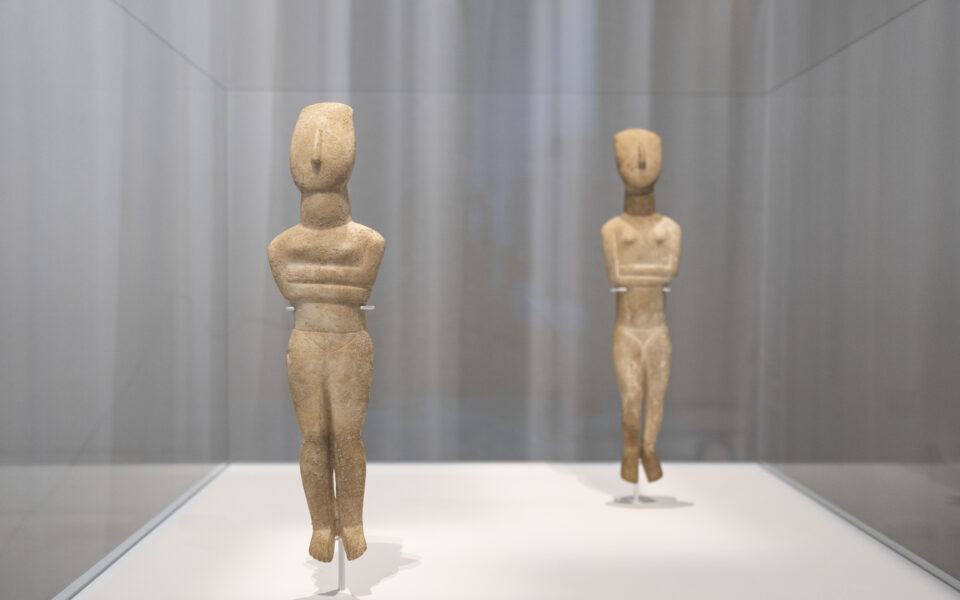Fifteen ancient Greek artifacts from the private Cycladic art collection of a US billionaire went on display for the first time on Wednesday in Athens, under an agreement which has stirred controversy in Greece.
The Cycladic antiquities, which Greece says are “masterpieces of unique archaeological value,” traveled to Athens following a deal between Greece and New York’s Metropolitan Museum of Art for the repatriation of 161 artifacts collected over the years by Leonard N. Stern, a businessman and philanthropist.
Speaking at a ceremony on the eve of the exhibition’s opening to the public, Prime Minister Kyriakos Mitsotakis said it was “truly a special day for the cultural life of the country,” describing the works as “priceless antiquities of rare beauty which are returning to their home.”
After being displayed for a year at the Cycladic Museum in Athens, the 15 works – the most significant of the collection – will be displayed in New York from early 2024 for 25 years. They will gradually be returned to Greece.
The Stern collection features some 161 works made in the Cyclades cluster of islands in the Aegean Sea, primarily in the early Bronze Age. Greece’s culture ministry says many of the objects in the collection, which includes figurines and vases, are considered to be “extremely rare” or unique examples of the art and technique of the Cycladic civilization.
The deal between Greece and The Met, which was ratified by Greek lawmakers in September, has stirred controversy in Greece, where the opposition as well as many archaeologists and conservators have called for their immediate, permanent return.
Five unions of archaeologists, conservators, and ministry employees called the agreement “a scandal” in a statement ahead of the opening.
“These objects have not been checked legally as to whether they are authentic or fake, nor how they got from the Cyclades to the collection of a multimillionaire in New York,” they said in the statement.
A small group of protesters held a white banner outside the museum during the event on Wednesday reading, “They’re stolen.”
Mitsotakis defended the deal as “a blueprint for other solutions to come,” hinting at the “Elgin Marbles,” as they are often known – 75 metres of Parthenon frieze, 15 metopes and 17 sculptures – which Greece has campaigned for since they were removed by British diplomat Lord Elgin in the early 19th century when he was ambassador to the Ottoman Empire then ruling Greece.
The British Museum, custodian of the marbles, has ruled out returning them.
This article was previously published at ekathimerini.com.












